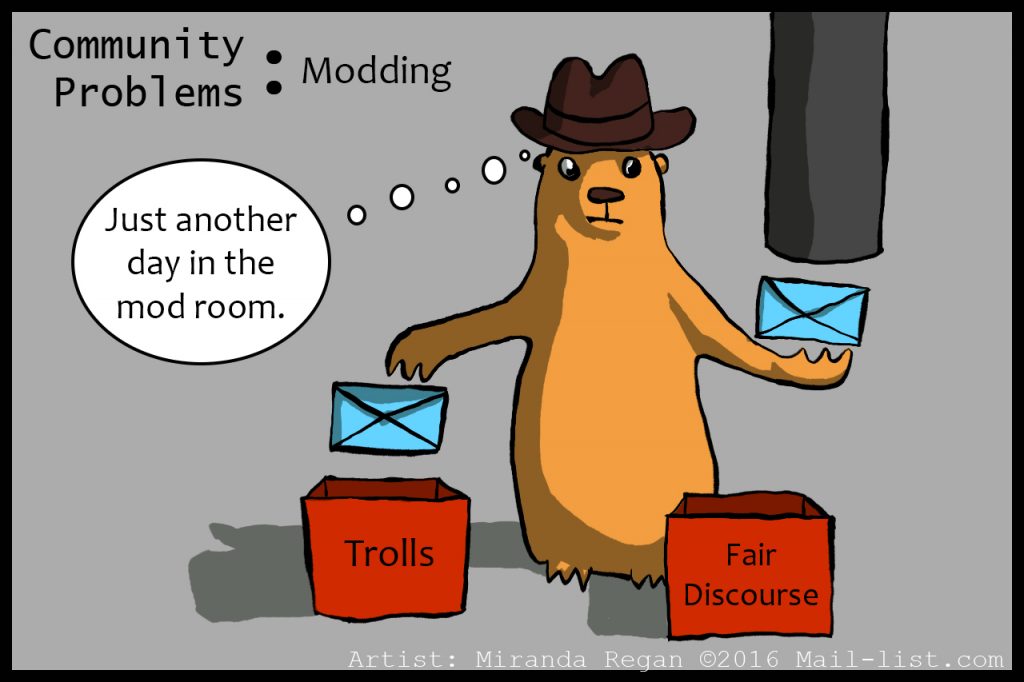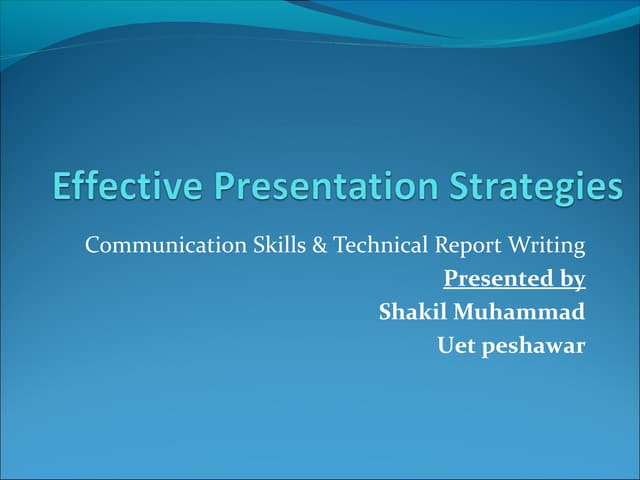What Does A Moderator Do?
A Moderator is responsible for monitoring and enforcing the rules and guidelines of a community or platform. They ensure that discussions, comments, and posts remain respectful, relevant, and appropriate for the intended audience.
Moderation plays a crucial role in maintaining a safe and inclusive online environment. As internet communities and platforms continue to grow, the need for effective moderation becomes more pronounced. A moderator’s primary duty is to oversee discussions, forums, social media platforms, or online communities.
By enforcing rules and guidelines, moderators safeguard against disruptive behavior, spam, and inappropriate content that may breach community standards. They act as guardians, monitoring discussions for offensive language, harassment, hate speech, and other violations. In addition to maintaining order, moderators facilitate meaningful conversations, encourage engagement, and mediate conflicts that arise within the community. Overall, their efforts create a positive and supportive space for users to share ideas, connect, and collaborate effectively.

Credit: www.cityjoboffers.com
Responsibilities Of A Moderator
Moderators play a pivotal role in maintaining the harmony and order within an online community. They are responsible for ensuring that discussions remain productive and respectful, as well as enforcing community guidelines. Let’s delve into the specific responsibilities of a moderator:
Facilitating Discussions
Moderators act as facilitators, guiding conversations and enabling smooth communication among community members. They actively participate in discussions, asking thought-provoking questions, and encouraging others to contribute their perspectives.
Additionally, moderators ensure that conversations stay on-topic by gently redirecting participants when discussions veer off-course. They help create an engaging environment where users feel comfortable expressing their opinions and sharing ideas.
Enforcing Community Guidelines
One of the chief responsibilities of a moderator is to enforce the community guidelines. These guidelines serve as a framework for appropriate behavior and ensure that the community remains safe and inclusive for all participants.
Moderators vigilantly monitor the community’s activities, promptly addressing any violations of the guidelines. This may involve moderating comments or posts that contain offensive language, spam, or any form of harassment. Such proactive intervention ensures that the community maintains its integrity and fosters healthy interactions.
Moderators may also be responsible for reviewing and approving new content submissions, taking into account the guidelines and quality standards established by the community. By consistently upholding these guidelines, moderators help cultivate a positive and valuable environment for all participants.

Credit: www.linkedin.com
Skills Required For Moderation
Being a moderator requires a diverse skill set in order to effectively manage and oversee online communities. From effective communication to conflict resolution, a moderator must possess a range of skills to maintain a positive and productive online environment.
Effective Communication
One of the key skills required for moderation is effective communication. A moderator must possess the ability to clearly and concisely convey information to community members. This includes responding to queries, addressing concerns, and providing guidance. Additionally, a moderator must have the skill to establish a friendly and welcoming tone, ensuring that all members feel valued and heard.
Conflict Resolution
Conflict resolution is another essential skill that moderators need to possess. Online communities often encounter disagreements or clashes between members, and a skilled moderator can step in and defuse tensions. This involves remaining unbiased, actively listening to both sides of the conflict, and finding a middle ground or solution that satisfies all parties involved. It’s crucial for a moderator to maintain a neutral and calm demeanor, promoting understanding and harmony within the community.
Challenges Faced By Moderators
Moderators play a crucial role in maintaining online communities and ensuring that discussions are productive, respectful, and within the guidelines set by the platform. However, their job is not without its fair share of challenges. Moderators often come face-to-face with disruptive individuals, handle spam attacks, and navigate the fine line between freedom of speech and censorship.
Dealing With Trolls And Spam
Moderators encounter various types of online misbehavior, and two common challenges they face are dealing with trolls and combating spam. Trolls are individuals who intentionally provoke and disrupt discussions, leaving inflammatory comments or engaging in personal attacks. To maintain a healthy online environment, moderators need to swiftly identify and handle trolls, preventing them from derailing conversations and discouraging other users.
Spam, on the other hand, refers to unsolicited and often irrelevant or promotional content that floods online platforms. Moderators must constantly monitor for spam, promptly removing it to maintain the quality and relevance of discussions. This involves implementing automated spam filters, responding to user reports, and staying vigilant for signs of suspicious or repetitive behavior.
Balancing Freedom Of Speech And Censorship
One of the most delicate challenges faced by moderators revolves around balancing freedom of speech and addressing content that violates community guidelines. Online platforms strive to foster an inclusive environment where diverse opinions can be expressed, but they also have a responsibility to protect users from harmful or inappropriate content.
Moderators must carefully assess and make judgment calls on potentially controversial content, considering factors such as hate speech, harassment, or threats. It requires a deep understanding of community guidelines, platform policies, and the ability to apply them consistently and fairly. This ensures that discussions remain respectful and inclusive while still allowing for constructive debates and diverse perspectives.
A transparent and clear communication process between moderators and users is essential in navigating this challenge. Moderators should provide explanations when content is flagged or removed and offer users the opportunity to appeal or clarify any misunderstandings. This level of transparency helps establish trust and promotes a healthy online community.

Credit: www.powerfulpanels.com
Importance Of Moderation
Moderation is a crucial aspect of any online community, serving as the backbone that enables healthy and engaging discussions. With the ever-growing number of internet users and the rise of social media platforms, the role of a moderator has become even more vital. Moderators act as the gatekeepers, ensuring a safe and welcoming environment for all participants, and fostering constructive conversations. In this article, we will highlight the importance of moderation with a focus on two key aspects: maintaining a safe and welcoming environment and promoting healthy and constructive conversations.
Maintaining A Safe And Welcoming Environment
One of the primary responsibilities of a moderator is to maintain a safe and welcoming environment within an online community. This means ensuring that all members feel comfortable and respected while participating in discussions. Moderators accomplish this by proactively monitoring the community, promptly addressing any abusive or offensive behavior, and enforcing the community guidelines and rules.
Moderators typically have the authority to warn, mute, or even ban members who engage in inappropriate conduct, such as cyberbullying, hate speech, or harassment. By swiftly taking action against such behaviors, moderators foster an atmosphere of inclusivity and discourage the proliferation of toxic interactions.
By cultivating a safe and welcoming environment, moderators not only protect the well-being of community members but also encourage open and honest discussions where diverse opinions are shared freely.
Promoting Healthy And Constructive Conversations
In addition to maintaining a safe environment, moderators play a pivotal role in promoting healthy and constructive conversations. They facilitate meaningful exchanges by monitoring discussions, mediating conflicts, and ensuring that conversations stay on topic and adhere to the community guidelines.
Moderators have the task of moderating the tone of conversations and preventing them from devolving into unproductive arguments or personal attacks. They encourage users to express their opinions respectfully and provide constructive feedback instead of engaging in unnecessary conflicts.
Moreover, moderators also play a vital role in ensuring a balance between freedom of speech and controlling excessive self-promotion or spamming. By strictly enforcing guidelines related to self-promotion, moderators maintain the quality of discussions and prevent the community from being inundated with irrelevant or promotional content.
Through their efforts, moderators foster an environment of constructive engagement, where members can learn from one another, share valuable insights, and grow together, ultimately enhancing the overall community experience.
In conclusion, moderation is indispensable for the success of any online community. The responsibilities of a moderator include maintaining a safe and welcoming environment, as well as promoting healthy and constructive conversations. With their vigilant monitoring, proactive actions, and careful guidance, moderators empower community members to engage in meaningful exchanges, building a vibrant and inclusive space.
Frequently Asked Questions On What Does A Moderator Do?
What Is The Role Of A Moderator In Online Communities?
A moderator facilitates discussions, enforces community guidelines, and ensures a positive and respectful environment for all participants.
How Does A Moderator Handle Conflicts In Online Communities?
A moderator mediates disputes, encourages civil dialogue, provides warnings, and, if necessary, takes corrective actions like issuing bans or suspensions.
What Skills Are Essential For A Successful Moderator?
A successful moderator possesses strong communication skills, patience, fairness, an understanding of community dynamics, and the ability to make impartial decisions.
Conclusion
A moderator plays a crucial role in ensuring healthy and productive online communities. By monitoring and managing user interactions, they create a safe space for discussions and enforce community guidelines. With their expertise, moderators foster meaningful connections and contribute to the overall positive user experience.
So, if you’re interested in maintaining a thriving online community, having a skilled moderator is essential.


